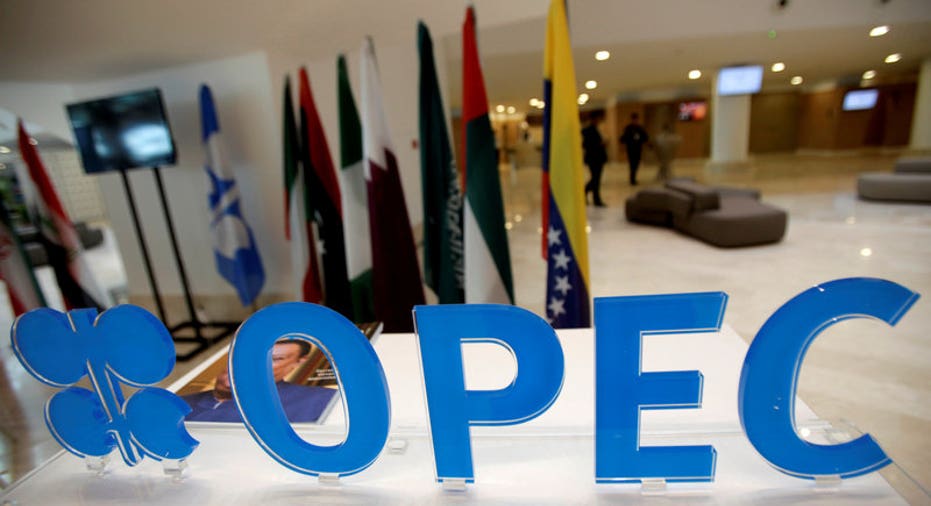OPEC's Oil Change a Little Too Late?

The Organization of the Petroleum Exporting Countries (OPEC) has been running their oil production engines hot n' heavy. Last week, they decided it was time for an oil change. There's doubt, however, if waiting so long will actually have the desired impact of keeping their most valuable physical commodity at higher prices.
OPEC made a monumental gamble when they decided to increase production several years ago. The bets were that with their robust oil reserves they could play a little heavy-handed hardball. If they increased production, prices would fall and emerging energy exploration and extraction in places including but not limited to the northern U.S. and southern Canada would be stymied or even die out. The “low prices†part of their wager worked well, although perhaps lower prices than even they anticipated.
Oil prices plummeted earlier this year, reaching a low on the New York Mercantile Exchange (NYMEX) of only $26 per barrel. By way of comparison, before OPEC unleashed their massive production, assisting in about a million barrels of surplus each day worldwide (roughly 94 million barrels produced and 93 million used), prices had increased to $115 per barrel in 2014. However, the other part of their gamble — the stifling new and existing exploration and production part — in places where the cost of production was higher than the price of the actual commodity (whether it was crude, natural gas or other energy variants), didn't work out. At least, not so much.
Certainly many energy companies had a much rougher road than they anticipated when prices were high. Some didn't make it, however, many did persevere. Some smaller companies were bought by larger energy-related firms. Some such energy conglomerates actually benefit from inexpensive petroleum products because they produce things that are petroleum-dependent (like plastic products). Those types of companies were able to weather the low prices and even grow by buying up a smaller, capital-strapped company here and there.
The result is that rather than OPEC putting the competition out of business, many energy companies are on a straight and stronger path forward. They have become more efficient and effective and are ready to compete globally. They addressed price adversity and are leaner and meaner because of the experience. For example, U.S. oil production doubled since 2010.
What all that means is this:
- OPEC has raised the white flag and changed tactics. They no longer want lower prices to persist. The oil change deal from last week, to reduce production by 1.2 million barrels per day (beginning in January), can have the desired impact of raising oil prices. Heck, OPEC alone can more than reduce the daily oil production surplus. In fact, in the short-term, just the OPEC announcement has made a price impact. Prices shot up nearly 13% in the two trading days following OPEC's oil change announcement. Trading volume at NYMEX reached an unprecedented high (4.5 million contracts traded on November 30). Both NYMEX West Texas Intermediate (WTI) and Brent crude (traded in London at the InterContinental Exchange) climbed over the $50 mark.
The longer-term impact on pushing prices up, however, remains decidedly dicey. Here's why: OPEC, which produced north of 60% of global oil 20 years ago, now produces only 40%. While still significant, they just can't make major moves that will impact prices over the longer-term without other non-OPEC nations joining in their efforts. Russia and the U.S., which each produce around 10% of global oil, may not agree with such cutbacks to raise prices. Russia has been willing to go along with OPEC since earlier this year when the two (OPEC and Russia) tried to form a coalition prior to an OPEC Doha meeting. However, that didn't pan out, and neither did the subsequent OPEC Algiers meeting. Bottom line: OPEC needs others to join (perhaps Canada, maybe Mexico?) for longer-term price impacts.
- Since the U.S. energy companies are rough and ready with a primed production pump (given the austerity measures many domestic energy firms have endured), the U.S. could ramp up production, thus continuing the oil stocks surplus. Such would be good for consumers who are, for a second year in a row, on track to save $1 billion ($540 per U.S. driver in 2015). It would also be good for transportation-related companies (like the airlines) whose profits are generally inversely proportional to oil prices.
While the longer-term impact of OPEC's oil change is currently in doubt, we'll know more soon. On December 9, OPEC will meet with some non-OPEC countries to see if they are willing to undertake an oil change of their own. At this point, however, the ultimate answer to OPEC's hot n' heavy production followed by this recent oil change remains very vague, at best.
Former US Trading Commissioner Bart Chilton is a policy and political commentator and the author of Ponzimonium: How Scam Artists Are Ripping Off America. He can be reached at bartchilton@bartchilton.com.



















